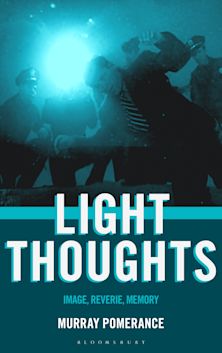- Home
- ACADEMIC
- Philosophy
- Aesthetics
- Philosophy of Jazz
Philosophy of Jazz
Philosophy of Jazz
You must sign in to add this item to your wishlist. Please sign in or create an account
Description
What is jazz? How does it differ from other kinds of music? To what extent is it an important subject for thinking about aesthetic questions? Philosophy of Jazz is among the first book-length philosophical discussions devoted to jazz. Daniel Martin Feige explores the relationship between jazz and European art music, arguing that in jazz central aspects of musical practice are made explicit, aspects that remain implicit in the tradition of European art music but nevertheless inform their practice. He develops the idea that interpretations of works and improvisations share a central common feature: It is the musical performance that clarifies the meaning of the music. A musical performance acquires its identity against the background of a tradition of performances, and as embodied tradition, improvisations as well as interpretations are part of an ongoing musical as well as historical dialogue. Using jazz to expand the vocabulary of art theory, this book reflects on how philosophy should take up objects of cultural and aesthetic concern.
Table of Contents
Introduction: What Is a Philosophy of Jazz?
Chapter 1: Jazz and the Tradition of European Art Music
Chapter 2: The Musical Work and Improvisation
Chapter 3: Musicians and Musical Tradition
Conclusion: The Philosophical Relevance of Jazz
Bibliography
About the Author
Product details
| Published | Sep 03 2024 |
|---|---|
| Format | Ebook (Epub & Mobi) |
| Edition | 1st |
| Extent | 124 |
| ISBN | 9781666959512 |
| Imprint | Lexington Books |
| Publisher | Bloomsbury Publishing |
About the contributors
Reviews
-
“Philosophy of Jazz is a compelling and critical introduction to the philosophy of jazz that shows why we need to have such a philosophy in the first place.”
Lydia Goehr, Professor, Department of Philosophy, Columbia University
-
“Focused on jazz and its relations to other kinds of music, Feige’s book is an outstanding essay about how to do things with sounds.”
Martin Seel, Goethe-University, Frankfurtam Main
-
“In this book, one of Germany's foremost young philosophers of art offers the most sophisticated treatment I know in aesthetics of jazz, arguing that it expresses the open, dynamic character of all musical practice.”
Jacob McNulty, University College London
-
“A very welcome addition to English-language discussions and debates about jazz. Attentive to both the practice of jazz and the philosophy of music, Feige rethinks the way in which English-language philosophers typically attempt to distinguish between European classical music and jazz music. Lucid and accessible, Feige’s work draws out the hermeneutic character of jazz and illuminates the way in which playing and understanding jazz involves the embodiment of tradition.”
Sam McAuliffe, Monash University

ONLINE RESOURCES
Bloomsbury Collections
This book is available on Bloomsbury Collections where your library has access.
































